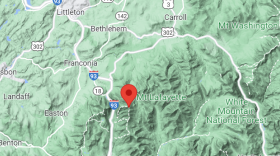For some Granite Staters the loon represents the state in a very emotional way, and supporters of the bird were out in force on Tuesday, defending a bill that would ban lead fishing gear. The bill was being heard by the House Fish and Game Committee, and attendees over-flowed out the door of a double capacity hearing room.
New Hampshire was the first state in the nation to ban some lead fishing gear in 2000, but lead hooks and sinkers over a certain size are still legal.
According to the Loon Preservation Committee half of the birds that they find dead have been killed by lead poisoning. The executive director of the Committee, Harry Vogel, told house lawmakers that if it weren’t for lead, the state would be farther along in rebuilding its loon population.
"I feel a little bit like we’re running this race, and after 37 years we’re still only half-way to the finish line," says Vogels, "We’re running as hard as we can, but we’re going backwards."
Loon supporters weren't the only ones in the room, however. Bass fishermen and Fish and Game stepped up to voice their opposition to the bill, saying it would be expensive for fishermen and gear shops, and there’s not enough hard science on loon mortality to prove the ban would be a benefit.
The executive director of Fish and Game Glenn Normandeau told the committee that he was afraid the bill would be contentious, but not advance the goal of increasing the loon population.









